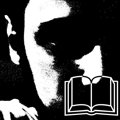1) "The conceptory was non sentient software, as ancient a Konishi polis itself. Its main purpose was to enable the citizens of the polis to create offspring: a child of one parent, or two, or twenty—formed partly in their own image, partly according to their wishes, and partly by chance. Sporadically, though, every teratau or so, the conceptory created a citizen with no parents at all.
In Konishi, every home-born citizen was grown from a mind seed, a string of instruction codes like a digital genome. The first mind seeds had been translated from DNA nine centuries before, when the polis founders had invented the Shaper programming language to re-create the essential processes of neuroembryology in software. But any such translation was necessarily imperfect, glossing over the biochemical details in favor of broad, functional equivalence, and the full diversity of the flesher genome could not be brought through intact. Starting from a diminished trait pool, with the old DNA-based maps rendered obsolete, it was crucial for the conceptory to chart the consequences of new variations to the mind seed. To eschew all change would be to risk stagnation; to embrace it recklessly would be to endanger the sanity of every child."
2) "Yatima's clone started up in the gleisner body and spent a moment reflecting on vis situation. The experience of 'awakening' felt no different from arriving in a new scape; there was nothing to betray the fact that vis whole mind had just been created anew. Between subjective instants, ve'd been cross-translated from Konishi's dialect of Shaper, which ran on the virtual machine of a womb or an exoself, into the gleisner version which this robot's highly un-polis-like hardware implemented directly. In a sense, ve had no past of vis own, just forged memories and a secondhand personality... but it still felt as if ve'd merely jumped from savanna to jungle, one and the same person before and after. All invariants intact.
The original Yatima had been suspended by vis exoself prior to translation, and if everything went according to plan that frozen snapshot would never need to be re-started. The Yatima-clone in the gleisner would be re-cloned back into Konishi polis (and re-translated back into Konishi Shaper) then both the Konishi original and the gleisner-bound clone would be erased. Philosophically, it wasn't all that different from being shifted within the polis from one section of physical memory to another—an undetectable act which the operating system performed on every citizen from time to time, to reclaim fragmented memory space. And subjectively, the whole excursion would probably be much the same as if they'd puppeted the gleisners remotely, instead of literally inhabiting them.
If everything went according to plan."
3) "Twelve dimensions? Ve'd felt so besieged by the realist backlash that ve'd never even considered doing more than defending Kozuch's six against the charge of 'abstractionism.' Twice as extravagant? It certainly would have been in the twenty-first century, when no one knew how long wormholes really were.
But now?
Blanca shut down the avatar and began a fresh set of calculations. Kozuch herself had never said anything so explicit about higher-dimensional alternatives, but the avatar's educated guess turned out to be perfectly correct. Just as a 2-torus was the result of expanding every point in a circle into another circle perpendicular to the first, turning every point in a 6-sphere into a 6-sphere in its own right created a 12-torus—and a 12-torus as the standard fiber solved everything. The symmetries of the particles, and the Planck-Wheeler size of their wormhole mouths, could arise from one set of six dimensions; the freedom of the wormholes to take on astronomical lengths could then arise from the remaining six."
4) "'I keep asking myself, though: where do we go from here? History can't guide us. Evolution can't guide us. The C-Z charter says understand and respect the universe... but in what form? On what scale? With what kind of senses, what kind of minds? We can become anything at all—and that space of possible futures dwarfs the galaxy. Can we explore it with out losing our way? Fleshers used to spin fantasies about aliens arriving to 'conquer' Earth, to steal their 'precious' physical resources, to wipe them out for fear of 'competition'... as if a species capable of making the journey wouldn't have had the power, or the wit, or the imagination, to rid itself of obsolete biological imperatives. Conquering the galaxy is what bacteria with spaceships would do—knowing no better, having no choice.
'Our condition is the opposite of that: we have no end of choices. That's why we need to find another space-faring civilization. Understanding Lacerta is important, the astrophysics of survival is important, but we also need to speak to others who've faced the same decisions, and discovered how to live, what to become. We need to understand what it means to inhabit the universe.'"




